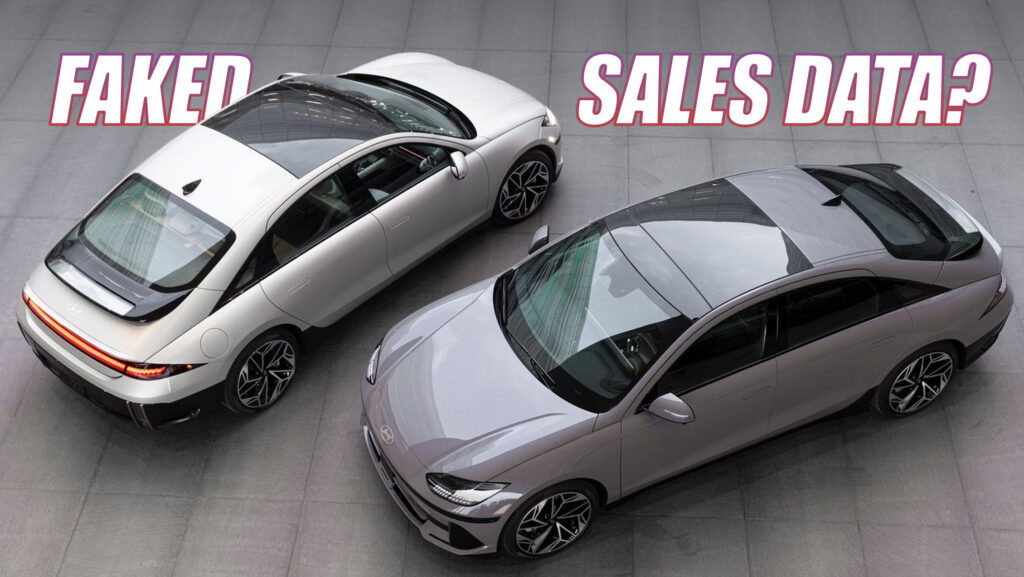- Hyundai allegedly faked EV sales figures by persuading dealers to improperly code loaner vehicles.
- Dealers who cooperated with the alleged grift were reportedly granted extra privileges.
- Hyundai says that it’s opened an internal investigation into the matter.
Currently, Hyundai Motor Group is the third largest automaker in the world, trailing only Volkswagen and Toyota. That said, some of its US dealers are now crying foul, claiming that some of its sales weren’t really, well, sales. The plaintiffs allege that Hyundai colluded with certain dealers to inflate sales figures. A new lawsuit surrounding the case has some rather damning claims.
Filed in Chicago federal court, the suit says that Hyundai pressured dealers to misuse inventory codes meant for “loaner” vehicles. Ultimately, the dealer would then rescind the coding when it came time to actually sell the vehicle. In the meantime, it would artificially inflate sales figures both internally and externally.
More: Hyundai Ioniq 5 Cheaper To Lease Than Nissan Versa, Despite Costing 3X More
As a result, dealers who participated in the scheme would get access to rewards from Hyundai including buying cars at a lower overall cost, better allocation, and bonus cash incentives. Again, all of these are just allegations at this point. Nevertheless, a group of Hyundai dealers is taking the automaker to court over them. One piece of evidence it claims is a recorded phone call.
On it, a district sales manager reportedly says “Desperate times call for desperate measures… we gotta hit a number for the press and for the Koreans.” The same manager allegedly suggested that EVs were the perfect candidates for this scheme since the code would be more appropriate for them.
The dealers in question are part of the Napleton Aurora Imports group. It won a settlement against Chrysler after filing a lawsuit for allegedly scheming to inflate sales figures in 2019 says Reuters.

Interestingly, Chrysler also agreed to pay the SEC some $40 million that same year over claims that it misled investors with inflated monthly sales figures. At this stage, it’s unclear exactly how many vehicles in total might have been “sold” this way at Hyundai dealers, but that information could come out in the future.
For now, Hyundai says that it’s investigating the claim and that it doesn’t condone falsifying sales data. Beyond that, the automaker isn’t commenting on the situation. The next few months should provide more information and there’s a chance that other dealers speak out about the situation.





